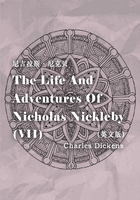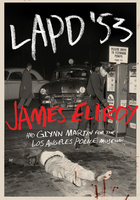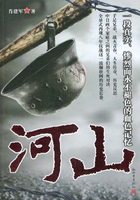The midday prayers had yet to be called. A knock at the door: I opened it to find Black Effendi, who was among us for a while during our apprenticeships. We embraced and kissed on the cheeks. I was wondering whether he'd brought some word from his Enishte, when he said that he wanted to look at the pages I'd been illustrating and at my paintings, that he'd called in friendship, and was going to direct a question to me in the name of Our Sultan. "Very well," I said, "what's the question I'm to answer?"
He told me. Very well, then!
Style and Signature
"As long as the number of worthless artists motivated by money and fame instead of the pleasure of seeing and a belief in their craft increases," I said, "we will continue to witness much more vulgarity and greed akin to this preoccupation with 'style' and 'signature.'" I made this introduction because this was the way it is done, not because I believed what I said. True ability and talent couldn't be corrupted even by the love of gold or fame. Furthermore, if truth be told, money and fame are the inalienable rights of the talented, as in my case, and only inspire us to greater feats. But if I were to say this openly, the mediocre illustrators in the miniaturists' division, rabid with envy, would pounce upon me, so, to prove that I love this work more than they themselves do, I'll paint the picture of a tree on a grain of rice. I'm well aware that this lust for 'style,' 'signature' and 'character' has come to us all the way from the East by way of certain unfortunate Chinese masters who've been led astray under the influence of the Europeans, by pictures brought there from the West by Jesuit priests. Nevertheless, let me tell you three parables that comprise a recital on this topic."
Three Parables on Style and Signature
ALIF
Once upon a time, to the North of Herat, in a mountain castle, there lived a young Khan who was fascinated with illuminating and painting. This Khan loved only one of the women in his harem, and this striking Tatar woman, whom he loved madly, loved him in return. They engaged in such bouts of lovemaking, sweating until morning, and lived in such ecstasy that their only wish was to live eternally. They soon discovered the best way to realize their wish was by opening books and gazing, for hours and hours and days on end, upon the astounding and flawless pictures of the old masters. As they stared at these perfect renderings, unfalteringly reproduced, they felt as though time would stop and their own felicity would mingle with the bliss of the golden age revealed in the stories. In the royal bookmaker's workshop, there was a miniaturist, a master of masters, who made the same flawless pieces over and over for the same pages of the same books. As was his custom, the master depicted the anguish of Ferhad's love for Shirin, or the loving and desirous glances between Leyla and Mejnun, or the duplicitous, suggestive looks Hüsrev and Shirin exchanged in that fabled heavenly garden—with one slight alteration however: In place of these legendary lovers, the artist would paint the Khan and his Tatar beauty. Beholding these pages, the Khan and his beloved were thoroughly convinced that their rapture would never end, and they showered the master miniaturist with praises and gold. Eventually, however, this adulation caused the miniaturist to stray from good sense; incited by the Devil, he dismissed the fact that he was beholden to the old masters for the perfection of his pictures, and haughtily assumed that a touch of his own genius would make his work even more appealing. The Khan and his beloved, considering these innovations—the personal stylistic touches of the master miniaturist—nothing but imperfections, were deeply disturbed by them. In the paintings, which the Khan observed at length, he felt that his former bliss had been disrupted in numerous ways, and he grew increasingly jealous of his Tatar beauty who was depicted with the individual touch of the painter. So, with the intention of making his pretty Tatar jealous, he made love with another concubine. His beloved was so bereft upon learning of this betrayal from the harem gossips that she silently hanged herself from a cedar tree in the harem courtyard. The Khan, understanding the mistake he'd made and realizing that the miniaturist's own fascination with style lay behind this terrible incident, immediately blinded this master artist whom the Devil had tempted.
BA
Once upon a time in a country in the East there was an elderly Sultan, a lover of illustrations, illuminations and miniatures, who lived happily with his Chinese wife of unsurpassed beauty. Alas, it soon happened that the Sultan's handsome son from a previous marriage and the Sultan's young wife had become enamored of each other. The son, who lived in terror of his treachery against his father, and ashamed of his forbidden love, sequestered himself in the bookmaker's workshop and gave himself over to painting. Since he painted out of the sorrow and strength of his love, each of his paintings was so magnificent that admirers couldn't distinguish them from the work of the old masters. The Sultan took great pride in his son, and his young Chinese wife would say, "Yes, magnificent!" as she looked upon the paintings. "Yet, time will surely pass, and if he doesn't sign his work, no one will know that he was the one responsible for this majesty." The Sultan responded, "If my son signs his paintings, won't he be unjustly taking credit for the techniques and styles of the old masters, which he has imitated? Moreover, if he signs his work, won't he be saying 'My paintings bear my imperfections'?" The Chinese wife, seeing that she wouldn't be able to convince her elderly husband on this issue of signature, was, however, eventually successful in persuading his young son, confined, as always, in the bookmaker's workshop. Humiliated at having to conceal his love, persuaded by his pretty young stepmother's ideas and with the Devil's coercion, the son signed his name in a corner of a painting, between wall and grass, in a spot he assumed was beyond notice. This, the first picture he signed, was a scene from Hüsrev and Shirin. You know the one: After Hüsrev and Shirin are wed, Shiruye, Hüsrev's son from his first marriage, falls in love with Shirin. One night, entering their bedchamber through the window, Shiruye swiftly sinks his dagger into his father's chest. When the Sultan saw his son's depiction of this scene, he was overcome with the sense that the painting embodied some flaw; he'd seen the signature, but wasn't consciously aware of it, and he simply reacted to the picture with the thought, "This painting bears a flaw." And since one would never expect any such thing from the old masters, the Sultan was seized by a kind of panic, suspecting that this volume he was reading recounted not a story or a legend, but what was most unbefitting a book: reality itself. When the elderly man sensed this, he was overcome with terror. His illustrator son had entered through the window, as in the painting, and without even looking twice at his father's bulging eyes, swiftly drove his dagger—as large as the one in the painting—into his father's chest.
DJIM
In his History, Rashiduddin of Kazvin merrily writes that 250 years ago in Kazvin, manuscript illumination, calligraphy and illustration were the most esteemed and beloved arts. The reigning Shah in Kazvin at that time ruled over forty countries from Byzantium to China—perhaps the love of book arts was the secret of this great power—but alas, he had no male heir. To prevent the lands he'd conquered from being divided up after his death, the Shah decided to find a bright miniaturist husband for his beautiful daughter, and toward this end, arranged a competition among the three great young masters of his atelier, all of whom were bachelors. According to Rashiduddin's History, the object of the competition was very simple: Whoever made the most remarkable painting would be the victor! Like Rashiduddin himself, the young miniaturists knew that this meant painting in the manner of the old masters, and thus, each of the three made a rendition of the most widely liked scene: In a garden reminiscent of Heaven itself, a young and beautiful maiden stood amid cypress and cedar trees, among timid rabbits and anxious swallows, immersed in lovelorn grief, staring at the ground. Unknowingly, the three miniaturists had rendered the same scene exactly as the old masters would have; yet, the one who wanted to distinguish himself and thereby take responsibility for the painting's beauty had hidden his signature among the narcissus flowers in the most secluded spot in the garden. And on account of this brazen act, by which the artist broke with the humility of the old virtuosos, he was immediately exiled from Kazvin to China. Thus, the competition was begun anew between the two remaining miniaturists. This time, both painted a picture lovely as a poem, depicting a beautiful maiden mounted on her horse in a magnificent garden. But one of the miniaturists—whether by a slip of his brush or by intent, no one knew—had depicted strangely the nostrils of the white horse belonging to the maiden with Chinese eyes and high cheekbones, and this was straightaway perceived as a flaw by the Shah and his daughter. True, this miniaturist hadn't signed his name, but in his splendid painting, he'd apparently included a masterful variation in the horse's nostrils to distinguish the work. The Shah, declaring that "Imperfection is the mother of style," exiled this illustrator to Byzantium. Yet there was one last significant event according to the weighty History by Rashiduddin of Kazvin, which occurred when preparations were being made for the wedding between the Shah's daughter and the talented miniaturist, who painted exactly like the old masters without any signature or variation: For the entire day before the wedding, the Shah's daughter gazed grief-stricken at the painting made by the young and handsome great master who was to become her husband on the morrow. As darkness fell that evening, she presented herself to her father: "It is true, yes, that the old masters, in their exquisite paintings, would depict beautiful maidens as Chinese, and this is an unalterable rule come to us from the East," she said. "But when they loved someone, the painters would include an aspect of their beloved in the rendering of the beautiful maiden's brow, eye, lip, hair, smile, or even eyelash. This secret variation in their illustrations would be a sign that could be read by the lovers and the lovers alone. I've stared at the beautiful maiden mounted on her horse for the whole day, my dear father, and there's no trace of me in her! This miniaturist is perhaps a great master, he's young and handsome, but he does not love me." Thereupon, the Shah canceled the wedding at once, and father and daughter lived out the remainder of their lives together.
*
"Thus, according to this third parable, imperfection gives rise to what we call 'style,'" said Black quite politely and respectfully. "And does the fact that the miniaturist is in love become apparent from the hidden 'sign' in the image of the beauty's face, eye or smile?"
"Nay," I said in a manner that bespoke my confidence and pride. "What passes from the maiden, the focus of the master miniaturist's love, to his picture is not ultimately imperfection or flaw but a new artistic rule. Because, after a time and through imitation, everyone will begin to depict the faces of maidens just like that particular beautiful maiden's face."
We fell silent. I saw that Black, who'd listened intently to the three parables I recounted, had now focused his attentions upon the sounds my attractive wife made as she roamed the hallway and the next room. I glared at him menacingly.
"The first story established that 'style' is imperfection," I said. "The second story established that a perfect picture needs no signature, and the third marries the ideas of the first and the second, and thus demonstrates that 'signature' and 'style' are but means of being brazenly and stupidly self-congratulatory about flawed work."
How much did this man, to whom I'd just given an invaluable lesson, understand of painting? I said: "Have you understood who I am from my stories?"
"Certainly," he said, without conviction.
So you don't try to discern who I am through his eyes and perceptions, allow me to tell you directly. I can do anything. Like the old masters of Kazvin, I can draw and color with pleasure and glee. I say this with a smile: I'm better than everybody. I have nothing whatsoever to do with the reason for Black's visit, which—if perchance my intuition serves me correctly—is the disappearance of Elegant Effendi the Gilder.
Black asked me about the mixing of marriage and art.
I work a lot and I enjoy my work. I recently married the most beautiful maiden in the neighborhood. When I'm not illuminating, we make love like mad. Then I set to working again. That's not how I answered. "It's a serious issue," I said. "If masterpieces issue from the brush of a miniaturist, when it comes to issuing it to his wife, he'll be at a loss to bestir the same joy," I said. "The opposite holds true as well: If a man's reed satisfies the wife, his reed of artistry will pale in comparison," I added. Like everyone who envies the talent of the miniaturist, Black, too, believed these lies and was heartened.
He said he wanted to see the last pages I'd illustrated. I seated him at my worktable, among the paints, inkwells, burnishing stones, brushes, pens and reed-cutting boards. Black was examining the double-leaf painting I was in the process of completing for the Book of Festivities, which portrayed Our Prince's circumcision ceremony, and I sat beside him on the red cushion whose warmth reminded me that my beautiful wife with her gorgeous thighs had been sitting here recently; indeed, I had used my reed pen to draw the sorrow of the unfortunate prisoners before Our Sultan, as my intelligent wife clung to the reed of my manhood.
The two-page scene I was painting depicted the deliverance of condemned and imprisoned debtors and their families by the grace of Our Sultan. I'd situated the Sultan on the corner of a carpet covered in bags full of silver coins, as I'd personally witnessed during such ceremonies. Behind Him, I'd located the Head Treasurer holding and reading out of the debt ledger. I'd portrayed the condemned debtors, chained to each other by the iron shackles around their necks, in their misery and pain with knit brows, long faces and some with teary eyes. I'd painted the lute players in shades of red with beatific faces as they accompanied the joyous prayers and poems that followed the Sultan's presentation of His benevolent gift: sparing the condemned from prison. To emphasize deliverance from the pain and embarrassment of debt—though I had no such plan at the outset—beside the last of the miserable prisoners, I'd included his wife, wearing a purple dress in the wretchedness of destitution, along with his longhaired daughter, sorrowful yet beautiful, clad in a crimson mantle. So that this man Black, with his furrowed brows, might understand how illustrating equaled love-of-life, I was going to explain why the chained gang of debtors was extended across two pages; I was going to tell him about the hidden logic of red within the picture; I was going to elucidate the things my wife and I had laughingly discussed while admiring the piece, such as how I'd lovingly colored—something the old masters never did—the dog resting off to the side in precisely the same hue as the Sultan's caftan of atlas silk, but he asked me a very rude, discourteous question:
Would I, perchance, have any idea where unfortunate Elegant Effendi might be?
What did he mean "unfortunate"! I didn't say that Elegant Effendi was a worthless plagiarist, a fool who did his gilding for money alone with nary a hint of inspiration. "Nay," I said, "I do not know."
Had I ever considered that the aggressive and fanatical followers of the preacher from Erzurum might've done Elegant Effendi harm?
I maintained my composure and refrained from responding that Elegant Effendi himself was no doubt one of their lot. "Nay," I said. "Why?"
The poverty, plague, immorality and scandal we are slave to in this city of Istanbul can only be attributed to our having distanced ourselves from the Islam of the time of Our Prophet, Apostle of God, to adopting new and vile customs and to allowing Frankish, European sensibilities to flourish in our midst. This is all that the Preacher Erzurumi is saying, but his enemies attempt to persuade the Sultan otherwise by claiming that the Erzurumis are attacking dervish lodges where music is played, and that they're defacing the tombs of saints. They know I don't share their animosity toward His Excellency Erzurumi, so they're making polite insinuations: "Are you the one who has taken care of our brother Elegant Effendi?"
It suddenly dawned on me that these rumors had long been spreading among the miniaturists. That group of uninspired, untalented incompetents was gleefully alleging that I was nothing but a beastly murderer. I felt like lowering an inkpot onto the Circassian skull of this buffoon Black purely because he took the slander of this jealous group of miniaturists seriously.
Black was examining my workshop, committing everything he saw to memory. He was intently observing my long paper scissors, ceramic bowls filled with yellow pigment, bowls of paint, the apple I occasionally nibbled as I worked, the coffeepot resting on the edge of the stove in the back, my diminutive coffee cups, the cushions, the light filtering through the half-opened window, the mirror I used to check the composition of a page, my shirts and, over there, my wife's red sash caught like a sin in the corner where she'd dropped it as she quickly quit the room upon hearing Black's knock at the front door.
Despite the fact that I've concealed my thoughts from him, I've surrendered the paintings I've made and this room I live in to his bold and aggressive gaze. I sense this hubris of mine will be a shock to you all, but I am the one who earns the most money, and therefore, I am the best of all miniaturists! Yes, God must've wanted the art of illumination to be ecstasy so He could demonstrate how the world itself is ecstasy to those who truly see.















